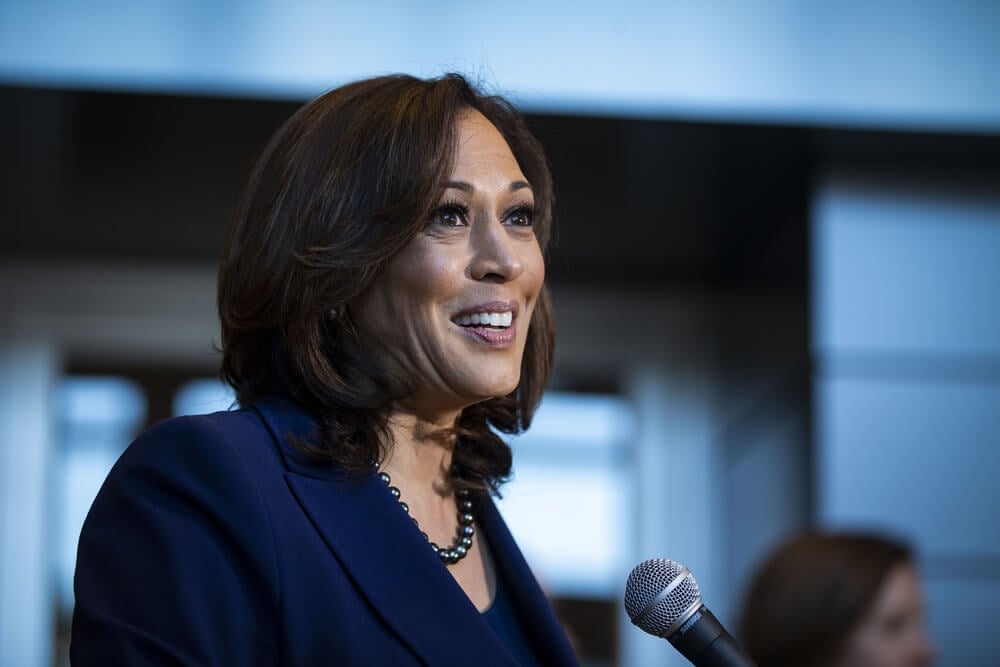The presidential TV debate in Philadelphia no doubt influenced the choice of at least one voter in the November elections. Her name is Taylor Swift, and she is the most popular American in history.
She announced her support for Kamala Harris shortly after the TV debate ended on Tuesday night, on Instagram, where she has 283 million followers. That's six and a half times more fans than both presidential candidates combined.
In the next 50 days or so, surveys will measure the impact of Taylor Swift's long-awaited statement about her favourite for the new president. However, the debate undoubtedly left an impression on millions of other viewers and certainly brought a new dynamic to the presidential race.
Many new things happened during the 90-minute TV debate at the National Constitution Centre in Philadelphia, some of which for the first time ever. Importantly, Kamala Harris and Donald Trump met for the first time and shook hands at the start of the show.
Kamala Harris initiated the handshake, which served as an introduction to her offensive strategy during the debate. Simultaneously, it revealed Trump's reactive stance, from which he was unable to break free throughout the entire duel, leaving a lasting impression.
Fight against number two
Trump demonstrated that he has not yet processed the fact that he is now running against Joe Biden's vice president, not Joe Biden himself. The Republican candidate and former US president remained trapped in his own ego, refusing to accept that he is not competing against number one but against number two.
After Biden’s disastrous performance in the duel with Trump at the end of June, the debate on ABC finally confirmed how difficult but deeply correct the decision of the Democrats to change candidates in the middle of the race was.
Trump demonstrated an inability to reprogramme his focus on Biden
Trump demonstrated an inability to reprogramme his focus on Biden, including the defeat in the 2020 election, and control his desire for retribution, a tendency that landed him in trouble during the debate with Kamala Harris.
If, under the influence of the right advice, he tried to deal with Harris by equating her with the results of the current administration, Trump was easy to read like "an open book" in that intention.
The issue of illegal migrants is part of Trump's strategy and has been at the forefront of his criticism of the current administration. But in the presidential debate, Harris likely made that adversarial strategy futile in the long run, confronting Trump with the fact that he personally blocked passage of a bipartisan immigration bill.
Of the entire offensive construction related to migrants, on which he relied a lot until now, only a bizarre and false detail will be remembered from Trump's performance at the presidential debate: how in Springfield, Ohio, migrants kidnap and eat pets.
A bad night
It was just one of several moments where Trump was caught failing to fact-check. At one point, Linsey Davis, a moderator, corrected his claim, saying that "there is no state in this country where it is legal to kill a baby after it's born."
In presidential debates, facts, data, and statistics have much less power than convincing verbal punches, even gestures and facial expressions. However, when a live show reveals your untruths five times in 90 minutes, as happened to Trump on Tuesday night, your attitude towards facts directly undermines your credibility.
 Trump's supporters leaving his rallies out of exhaustion and boredom - Kamala Harris
Trump's supporters leaving his rallies out of exhaustion and boredom - Kamala Harris
Trump “had a bad night," said Brit Hume, Fox News chief political analyst. "We heard so many of the old grievances that we’d long thought that Trump had learned were not winners politically," said Hume after the debate.
His gestures, not looking at his opponent, for example, or addressing her by looking at the moderators, gave the impression of a man who avoids a fight, or at least doubts himself about what he is saying.
Trump's need to deny his opponent's views, such as supporters leaving his rallies "out of exhaustion and boredom," made him a nervous loser, who was derailed, and forced to refute.
Defensiveness will remain the main impression of his performance long after the Philadelphia presidential debate. After each duel, people retain impressions, feelings, and emotions that shape their future attitudes more than any new facts or information discussed during the debate.
Trump continued with a defensive attitude even after the debate. Speaking to Fox News, he wasn't sure whether or not he wanted another round. "I don't know. I have to think about it," he answered when asked if he would agree to another debate in October.
Someone who is convinced that he won the presidential debate just a few hours ago does not utter words like "I don't know" or "I have to think about it." Moreover, this kind of indecisiveness and ignorance does not go well with a man who is convinced that he will win the elections in less than two months.